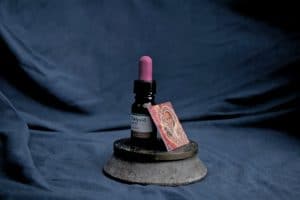Prevention, treatment and recovery
Yesterday (8 July 2021) Dame Carol Black published the second part of her independent Review of Drugs, setting out a way forward on drug treatment and recovery for the government. In the opinion of myself and many others, the Review is the most important drugs report of the century so far. I covered Part 1 of the Review in depth here. It laid bare the extent of the illicit drugs market in the UK, worth almost £10 billion a year, with 3 million users and a supply chain that has become increasingly violent and exploitative. It described in detail the current situation with drug deaths at an all-time high and explained how the drugs market is driving most of the nation’s crimes.
Part 1 also showed how entrenched drug use and premature deaths occur disproportionately more in deprived areas and the north of the country. Dame Carol says that it is highly likely that the pandemic has widened inequalities and that any recession would further drive trends in drug use and deaths in the wrong direction.
All these issues are examined in depth in Part 2, which concludes that
“the public provision we currently have for prevention, treatment and recovery is not fit for purpose, and urgently needs repair.”
Dame Carol is forthright in saying that the Government faces an unavoidable choice: invest in tackling the problem or keep paying for the consequences. She says that a whole-system approach is needed, with demand reduction a key component, to drive down the profitability of the market. This second part of the review offers concrete proposals, deliverable within this Parliament, to achieve this.
For problem drug users, including an estimated 300,000 opiate and crack users, Dame Carol says we cannot expect a reduction in demand without reversing the recent disinvestment in treatment and recovery services. To achieve and sustain recovery people need, alongside treatment, somewhere safe to live and something meaningful to do (a job, education or training). Too many people are in and out of treatment for years or even decades, without turning their lives around for good.
Conclusions
Dame Carol argues that we can only solve these problems by a whole system, multi-agency approach with government departments working together to invest in and improve treatment, employment, housing support and the way that people with addictions are treated in the criminal justice system. She recommends the appointment of a Minister with responsibility for drugs.
Dame Carol is clear that while increased funding is necessary, it will not be sufficient. She argues that greater co-ordination and accountability at national level must also flow through to the local level, where responsibility sits for the delivery of drug treatment and wider recovery outcomes. If government invests more in treatment, this money should be ring-fenced, and local authorities must be required to work with wider health, employment support, housing and criminal justice partners to develop joint commissioning plans and be held to account for these plans and their outcomes. It is clear that making drugs the responsibility of Health and Wellbeing Boards under the leadership of local authorities has not been a successful approach.
Dame Carol also advocates that addiction should be considered a chronic health condition requiring long term follow up.
She also says that we should no longer turn a blind eye to recreational drug use, putting drug prevention back on the political agenda. Here is her rationale:
“A million people use powder cocaine each year and the market is worth around £2 billion. The vast majority of users do not see themselves as having a drug problem and they are unlikely to come forward for treatment. However, they are causing considerable harm to others through the supply chain, both here and abroad. This is a difficult group to influence but, as the COVID-19 pandemic has so clearly shown, behavioural and attitudinal shifts in health behaviour are possible. We need to invest now in an innovation fund to test out which marketing and behavioural interventions could work in the UK, building on evidence from abroad.”
Dame Carol acknowledges that her report calls for a large amount of funding but says that there would be a significant return on this investment with each £1 spent on treatment saving £4 from reduced demands on health, prison, law enforcement and emergency services.
I will look at the detail of Part 2 of the Review of Drugs in a series of posts over the next few weeks.
Thanks to Pretty Drug Things for the images in this post. Pretty Drug Things explores different visual aesthetics and marketing techniques used in either promoting or demonising different psychoactive substances in our society.









2 Responses
Through all the recent turmoil of Covid the drug and alcohol problem in the UK has gone way underground just waiting to burst into a colossal problem bigger than we’ve ever known.
If what has emerged in this report can be put into place would bring hope and understanding of being an addict is like.
A purpose to live, to work, a place to call home a reason to feel worthy and loved all basic things in life, can over come the desire to be caught up in a never ending circle of addiction.